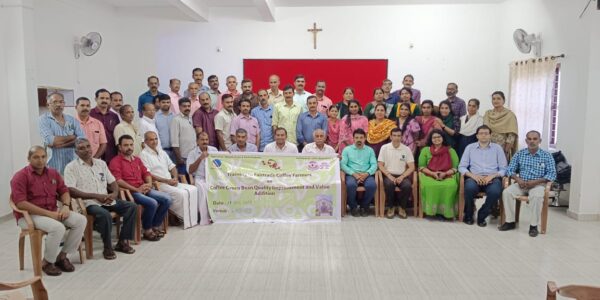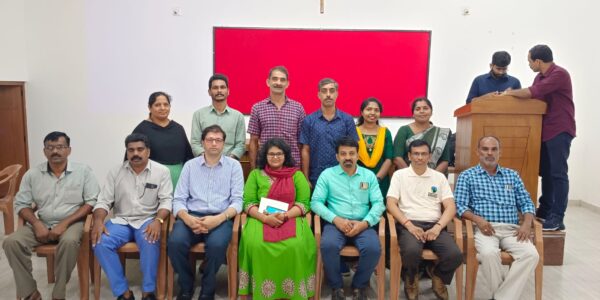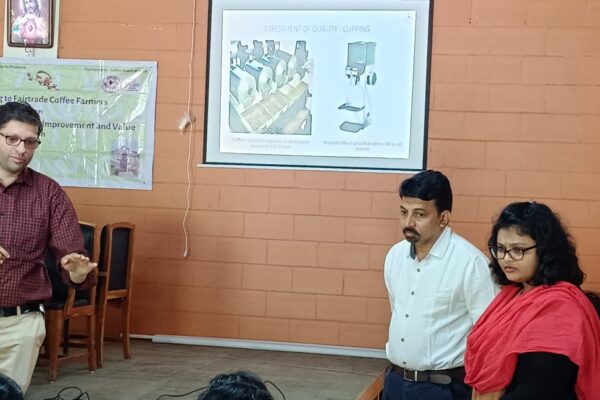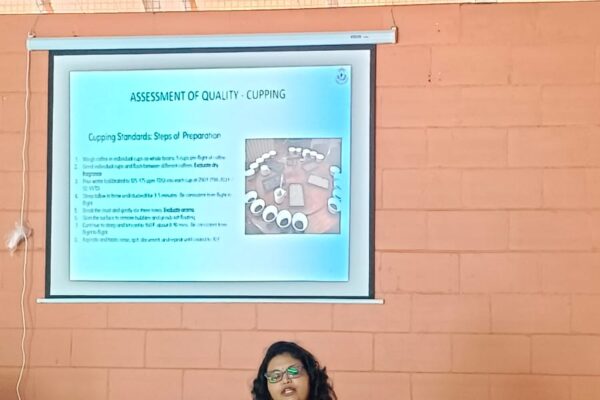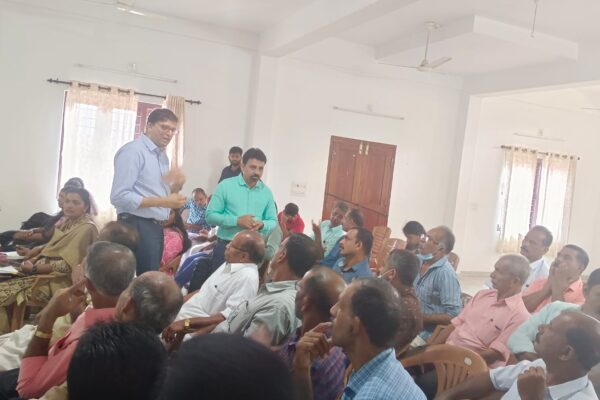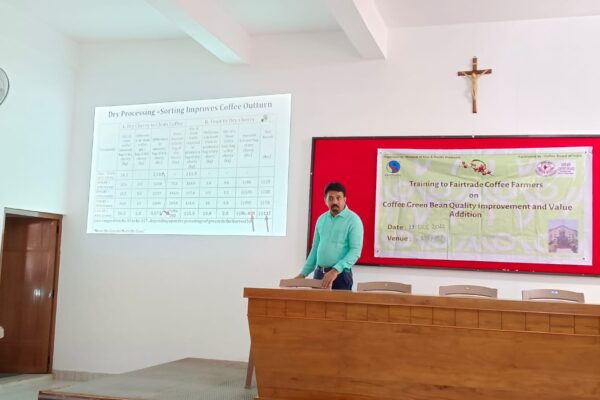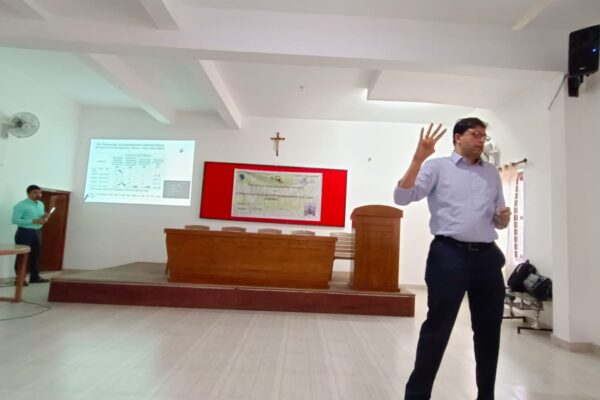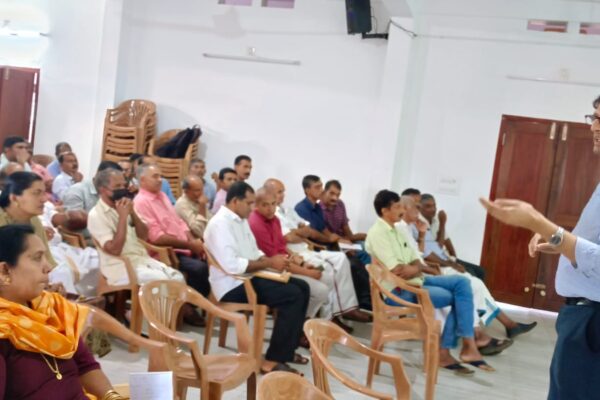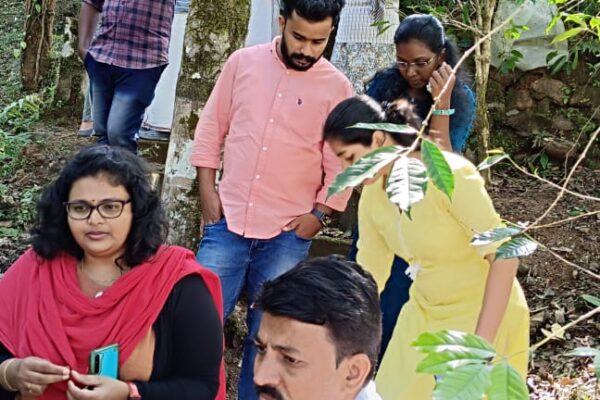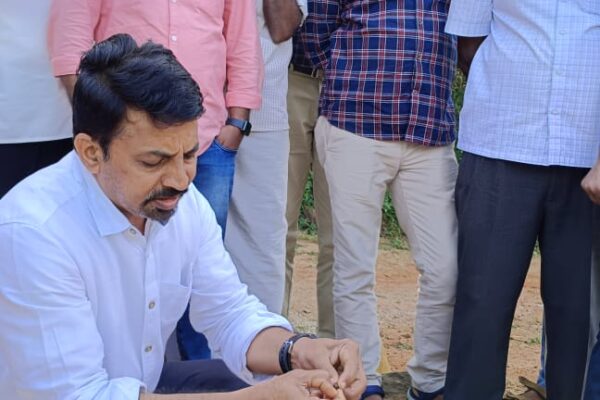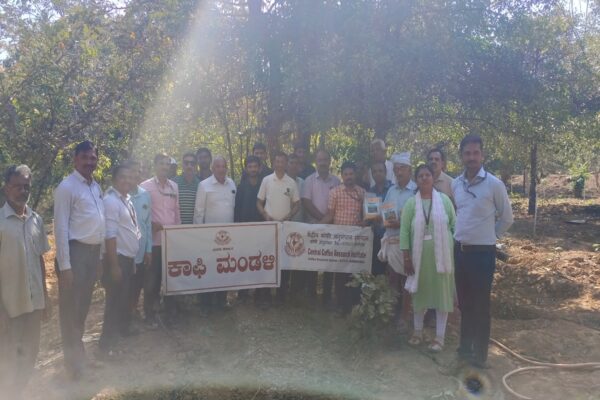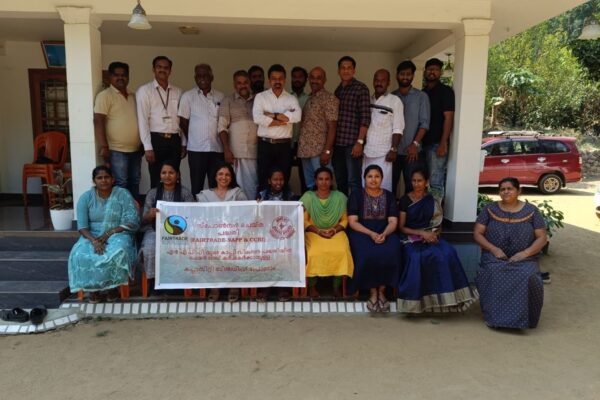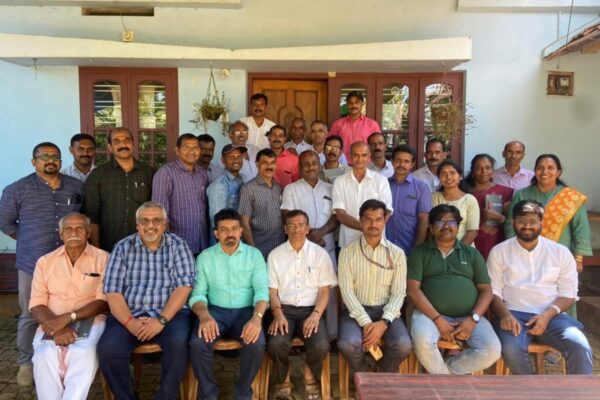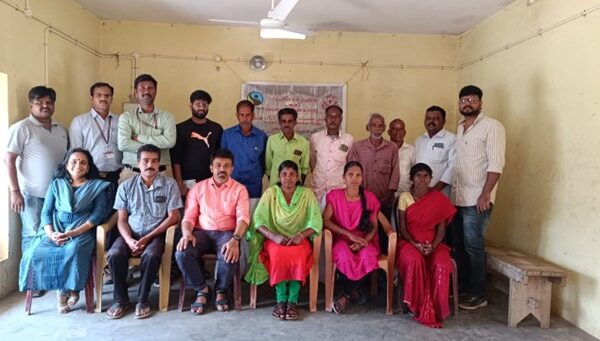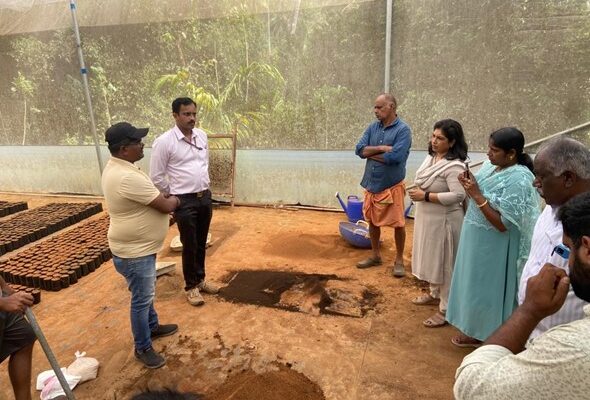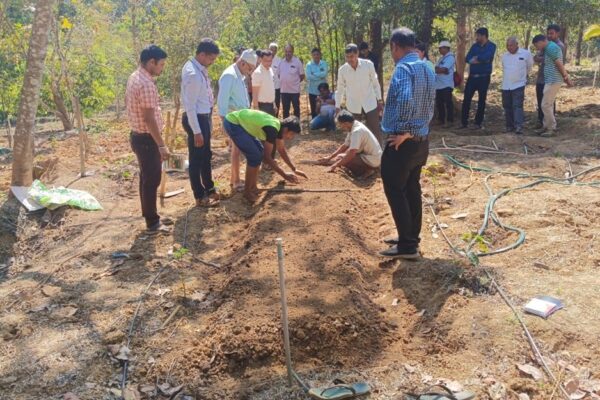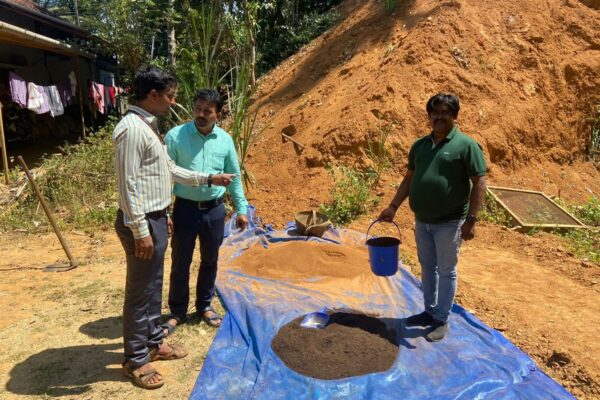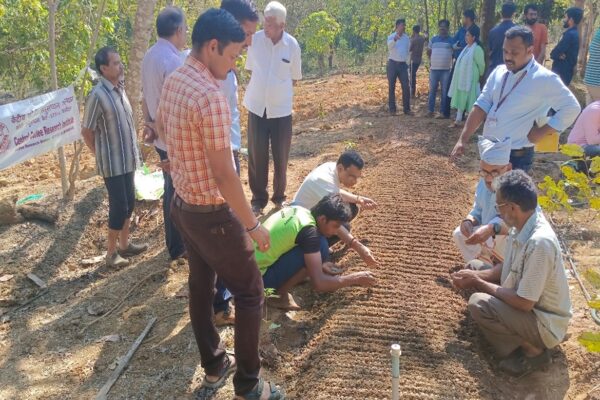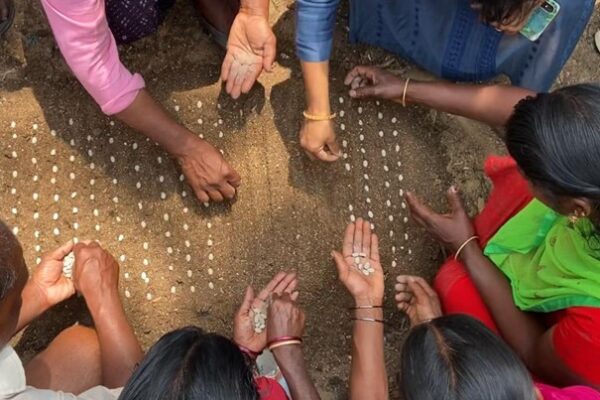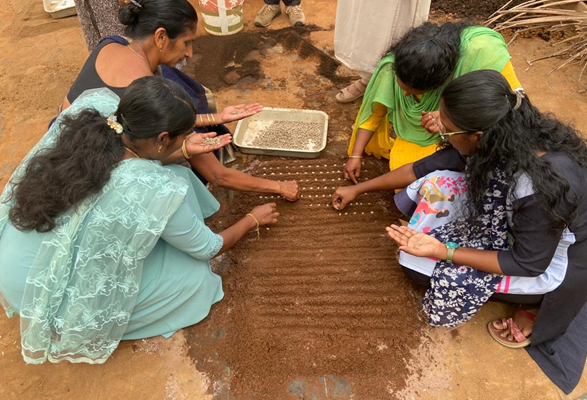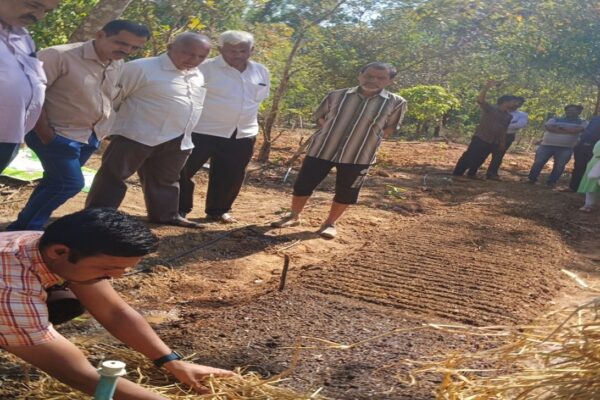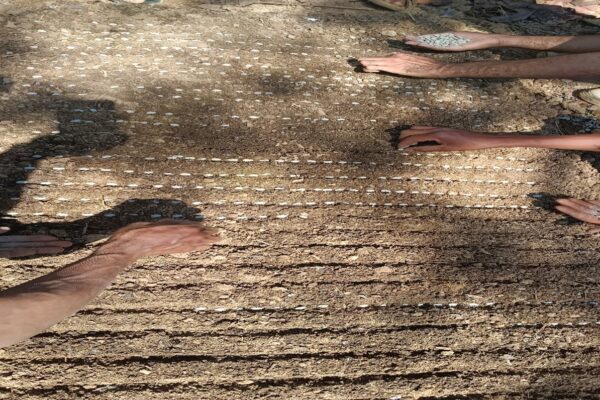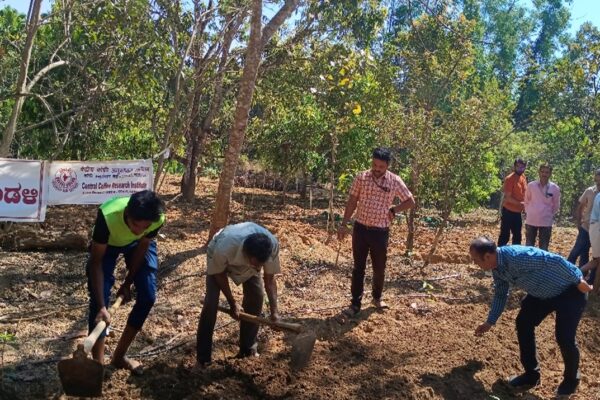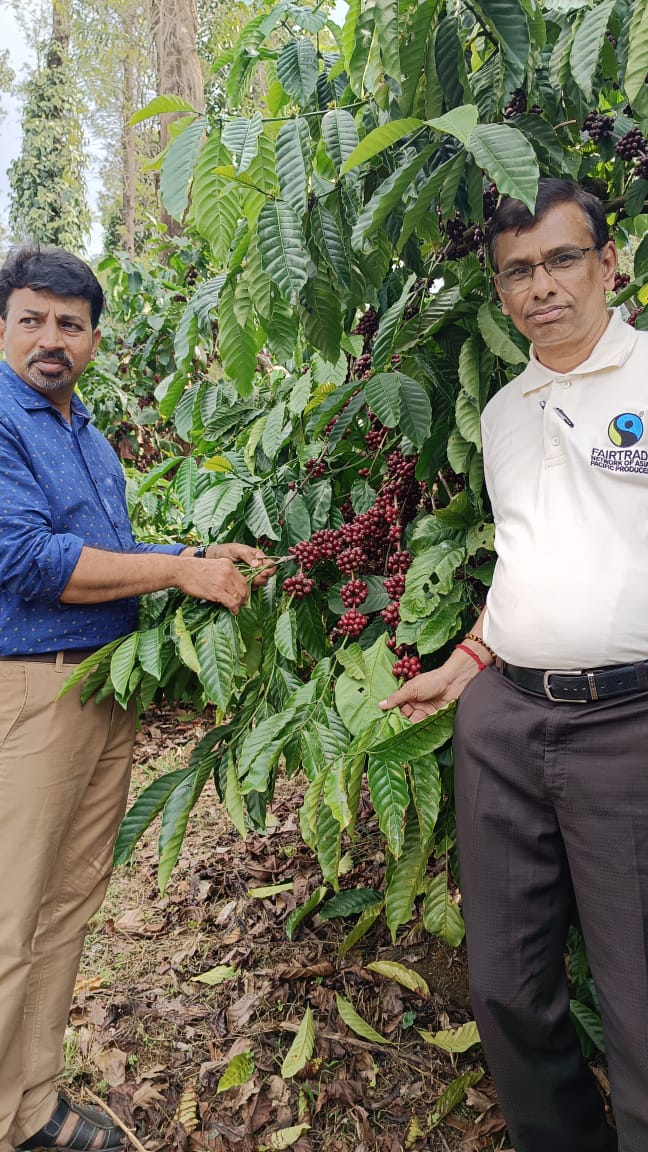
In India, some of the major needs identified for coffee producers are:
- To improve coffee quality despite favourable natural conditions, many producers struggle to achieve the desired quality output from their produce due to multiple factors, including lack of awareness and training, lack of proper infrastructure support, undisciplined production and harvesting practices, non-uniform processing techniques, etc. Achieving a superior and uniform quality across all the farmer members can ensure a better quality batch and better prospects of sales and prices for the producer organisations.
- Many coffee SPOs in south India comprises of small and marginal farmers, deprived of proper processing and value-addition facilities. For coffee, farm-level processing is crucial while many farmers still are drying their coffee beans on the ground resulting in deteriorating quality and adulteration of stones and similar substances. Eventually, farmers lose out on prices, and many a time their product is not accepted in the international market. To bring in a better processing facility including drying and hulling, both farm-level and SPO-level interventions are important.
- Reduction in yield, lack of cost production efficiency, Need for alternative income generation, and need for improved post-harvest processing capacity at the farm level: In India, most coffee farmers practice shade cultivation to grow Robusta and Arabica. There has been a substantial decrease in the yield in recent years due to climate variability, erratic rainfalls, untimely blossom showers, loss of shade trees, and many more. One of the significant reasons why farmers are helpless is their dependency on the old coffee trees that they have been growing for decades, which cannot cope with the multitude of exogenous variabilities happening in their natural environment.
The possible solution for the farmers is to try, test, and identify more suitable varieties that fit better to the current environment and can give better yields at the same time.
Therefore, a tripartite MOU was signed by Fairtrade NAPP with Central Coffee Research Institute (CCRI) in association with its Partner Organisation – EFFORT on 21st November 2022 for the implementation of the projects under the Coffee Development Plan (CDP).
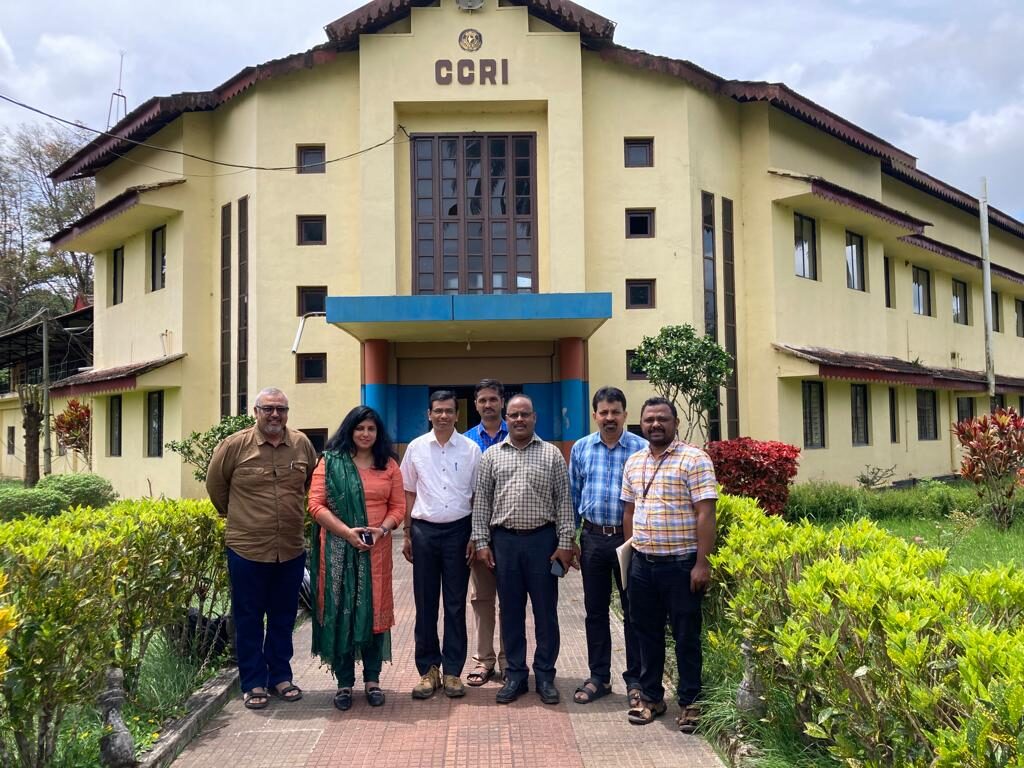 The Central Coffee Research Institute, established in 1925, is located in the heartland of coffee tracts, near Balehonnnur in Chikmagalur district of Karnataka. It is the Research and Extension wing of the Coffee Board of India. The Institute is involved in intensive research in the disciplines of Plant Breeding, Agronomy, Agricultural Chemistry & Soil Science, Plant Physiology, Pathology, Entomology, and Post-harvest Technology. Around 60 scientific and technical personnel are involved in carrying out research in various disciplines.
The Central Coffee Research Institute, established in 1925, is located in the heartland of coffee tracts, near Balehonnnur in Chikmagalur district of Karnataka. It is the Research and Extension wing of the Coffee Board of India. The Institute is involved in intensive research in the disciplines of Plant Breeding, Agronomy, Agricultural Chemistry & Soil Science, Plant Physiology, Pathology, Entomology, and Post-harvest Technology. Around 60 scientific and technical personnel are involved in carrying out research in various disciplines.
Regular training programs are conducted for estate managers and supervisory personnel of the coffee plantations and also for the extension officers of the Coffee Board.
‘Coffee Green Bean Quality Improvement and Value Addition’ Training in South India
Under the partnership, CCRI has trained 123 participants from 13 Producer Organisations from Kerala and Karnataka on ‘Coffee Green Bean Quality Improvement and Value Addition’.
In 2023 the next capacity building program will be organised through the establishment of Coffee Demo plots and demonstration of best cultivation practices towards yield improvement.
“The training was very insightful for me as well as for the farmers in my organisation. As it is the harvesting time, it really helped in understanding more on quality improvement post harvesting by ensuring the right practices while sorting, packing and storing. Looking forward to more such trainings in the future.
Augustine from Malabar Agriculture Society
“The training program of CCRI was excellent. Even though we train our farmers, the real information provided by the authorities of coffee board with visual aids, has really helped our participants understand the real factors. For farmers, starting from planting till drying is their focus but through this training they understood why they should harvest in a quality oriented way. Cupping and other quality evaluations training is needed for the officers of organizations. The Coffee Board scientists within their time limit provided us with such an informative session. Thank you to the Fairtrade NAPP team for taking such an initiative to help and support our small producer farmer community with need based services and assistance.
Sheena Susan Varghese – HOWFFA
Training on Nursery Raising Technique on Coffee Demo Plots in Kerala and Karnataka
Post the signing of the MoU with Central Coffee Research Institute (CCRI), 04 capacity-building training on the cultivation of best practices for yield improvement were conducted for 11 coffee producer organisations in South India. A total of 10 coffee demo plots ( 02 in Karnataka and 08 in Kerala) have been selected for the implementation of nursery raising techniques.
70 Fairtrade farmers were trained by the Division of Agronomy on the technique of preparing nursery beds (6 m (L) x 1 m (W) x 15 cm (H)) and sowing seeds.
The scientists demonstrated the technique of preparation of the upper surface of the selected nursery bed area, mixing and application of finely sieved agriculture lime, and incorporating nursery mixture with well -rotted cattle manure or compost along with rock phosphate into the bed. The farmers were trained on 04 demo plots and the same methodology will be replicated by them in the remaining 06 plots.
Post the preparation of the bed area, the farmers were taught the technique of sowing seeds with flat sides facing the soil at a distance of 2.5 -3 cm in regular rows, covering the seeds with a thin layer of finely sieved soil and mulching with a layer of paddy straw. They were also briefed on the preparation of poly bag (Transplanting of tope stage seedlings from primary nursery bed to poly bag) followed by planting into the main field (i.e., 6-8 pairs of leaves).
Some of the critical advisory from the scientist to the coffee farmers were procurement of the seeds from the research department of Coffee Board and replanting of Robusta in the existing block. In the plantation block of Arabica, the farmers were advised to plant Erythrina (Dadap) and Glyricidia stakes for maintaining optimum shade. For young plants, irrigation was recommended @ 4-5 liters per plant followed by application of FYM/compost @ 2 kg per plant for both Arabica & Robusta blocks, and provide mulching and hutting. For effective management of nursery pests and diseases, the farmers were asked to adopt the plant protection measures as per the Coffee Board recommendations.


